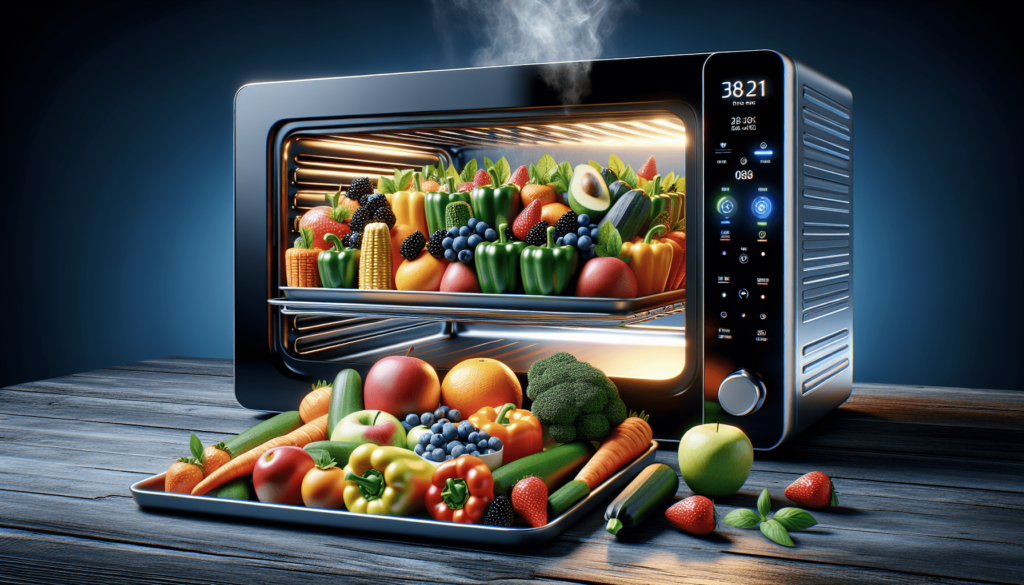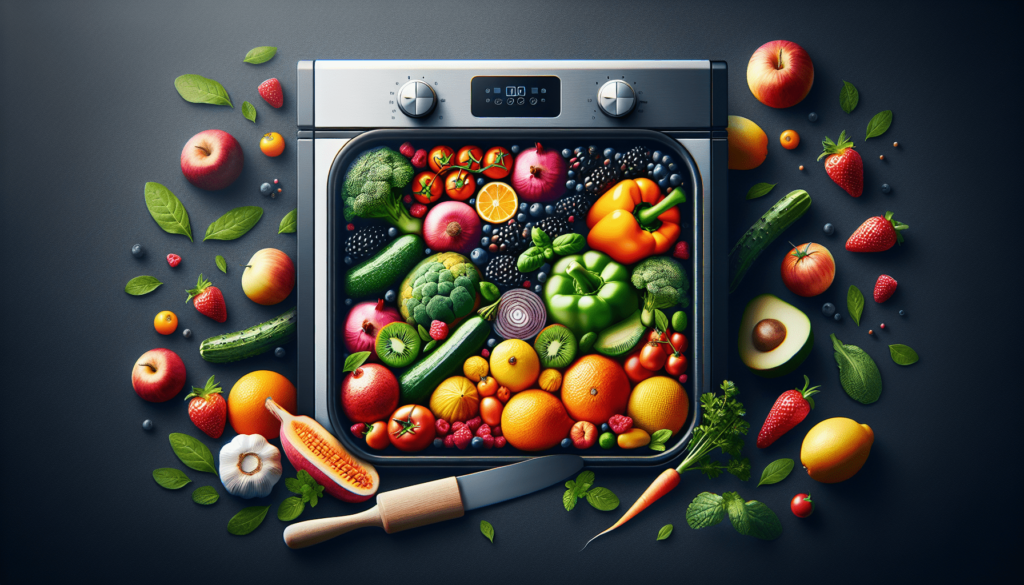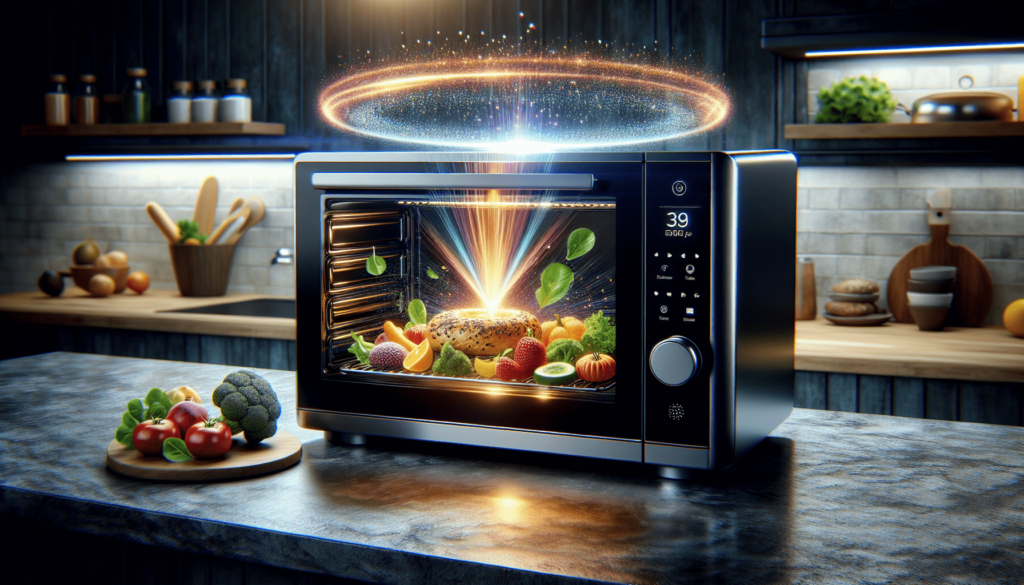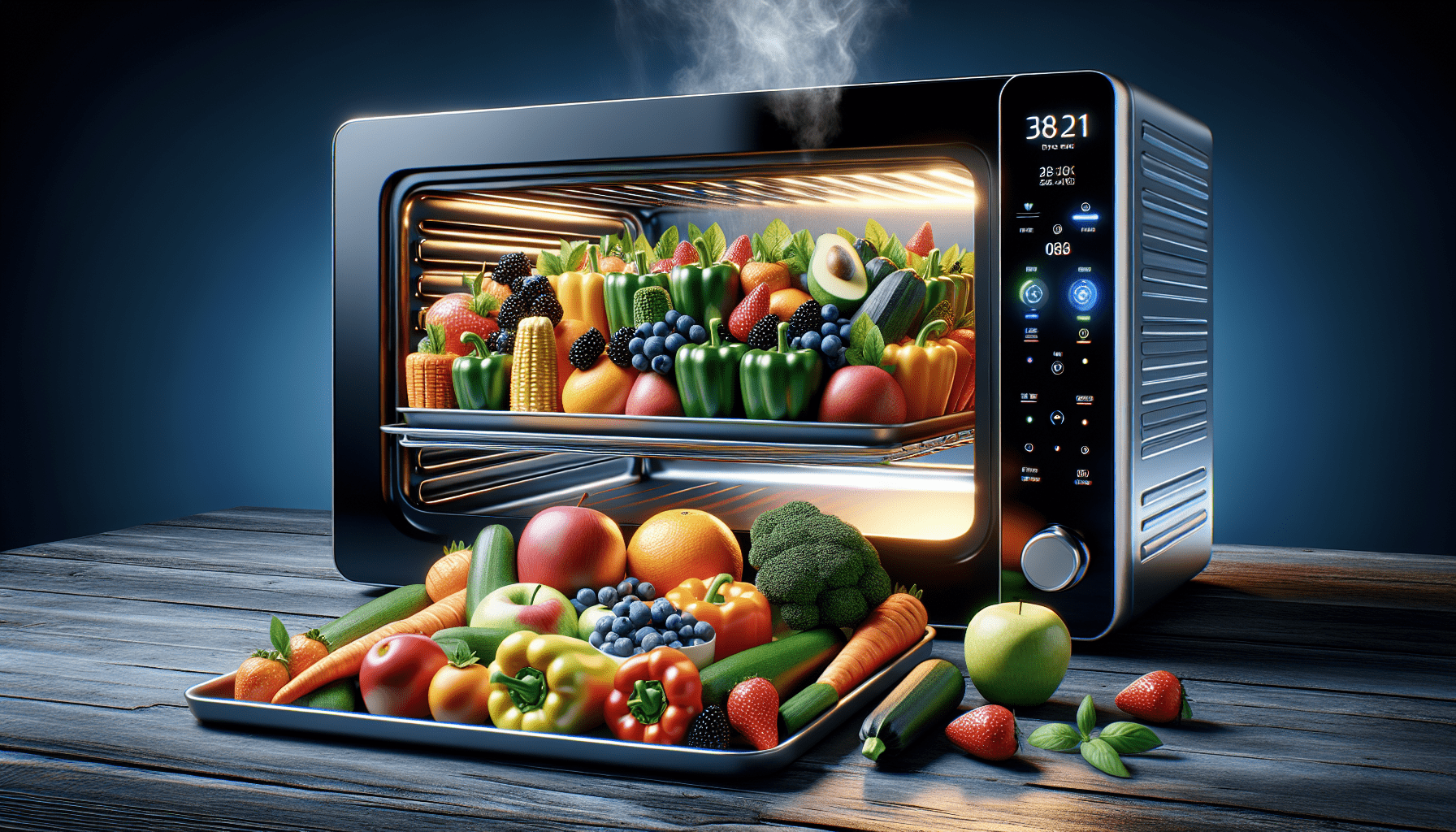Are you tired of your vegetables losing their nutritional value when you cook them? Look no further, because we have some smart oven cooking tips for you that will help preserve those important nutrients in your food. Whether you’re roasting, baking, or toasting, these tips will ensure that you’re still getting all the goodness from your ingredients. Say goodbye to nutrient loss and hello to healthier meals with these simple yet effective techniques.
Select the Right Cooking Method
When it comes to cooking, selecting the right method can make a huge difference in preserving the nutrients in your food. Steaming is a great option as it uses moisture to cook the food, which helps retain its natural flavors and essential vitamins and minerals. By avoiding direct contact with water, steaming prevents the loss of water-soluble nutrients.
Baking or roasting is another excellent cooking method that can help retain nutrients. When you bake or roast your food, it is exposed to dry heat, which helps preserve the natural flavors and nutrients. This method is particularly effective for vegetables, as it brings out their natural sweetness and preserves their nutritional value.
On the other hand, it’s best to avoid deep-frying your food if you want to preserve its nutrients. Deep-frying involves immersing the food in hot oil, which can lead to the loss of vitamins and minerals. The high temperature and prolonged heat exposure can also result in the formation of harmful compounds. So, opt for steaming, baking, or roasting instead.
Prep Your Food Properly
Properly preparing your food before cooking it is essential for preserving its nutrients. Washing fruits and vegetables thoroughly helps remove any surface dirt, pesticides, or bacteria. However, avoid soaking them in water for too long, as water-soluble nutrients can leach out.
Cutting food into uniform sizes ensures even cooking. When the pieces are the same size, they will cook at the same rate, preventing overcooking or undercooking. Additionally, by cutting vegetables into larger chunks, you can minimize nutrient loss during cooking.
While peeling and trimming may sometimes be necessary, try to minimize these processes. Most of the nutrients are concentrated in the outer layers of fruits and vegetables, so leaving the skin on whenever possible helps retain those essential vitamins and minerals.

Use the Right Temperature
Using the right cooking temperature is crucial for preserving the nutrients in your food. Following the recommended cooking temperature allows for proper cooking while minimizing nutrient loss. It’s important not to exceed excessively high heat as it can lead to the destruction of heat-sensitive vitamins and denature proteins.
Overcooking your food should also be avoided as it can result in the degradation of nutrients. Each food has an optimal cooking time, and exceeding it can lead to nutrient loss. Pay attention to recommended cooking times or use a digital meat thermometer to ensure your food is cooked to perfection without overdoing it.
Optimize Cooking Time
Reducing cooking time is another way to preserve the nutrients in your food. The longer food is exposed to heat, the more vitamins and minerals can be lost. So, whenever possible, aim for shorter cooking times. You can achieve this by using smaller cuts of meat, preheating the oven, or using a pressure cooker.
Avoid prolonged heating of leftovers or reheating food multiple times. Each subsequent reheating can diminish the nutritional value of the food. Additionally, using smart oven presets can be beneficial, as they are designed to optimize cooking time and temperature, ensuring your food is cooked to perfection while preserving its nutrients.

Add Nutrient-Rich Ingredients
Incorporating nutrient-rich ingredients into your dishes can greatly enhance their nutritional value. Fresh herbs and spices are excellent choices for adding flavor as well as essential vitamins and minerals. They provide an array of antioxidants, which have numerous health benefits.
Colorful vegetables, such as bell peppers, carrots, and tomatoes, not only add visual appeal to your dishes but also provide a wide range of nutrients. Different color vegetables contain various antioxidants, vitamins, and minerals. By including a variety of colorful vegetables, you can increase the nutritional diversity of your meals.
Using nutrient-dense cooking oils is essential for enhancing the nutrient content of your food. Opt for oils like extra virgin olive oil or avocado oil, which contain beneficial monounsaturated fats and antioxidants. These oils can help improve the absorption of fat-soluble vitamins and provide essential fatty acids.
Choose Your Cookware Wisely
Selecting appropriate cookware can also contribute to the preservation of nutrients in your food. Using non-reactive materials such as stainless steel or cast iron ensures that no harmful chemicals or metals leach into your food during cooking. This way, you can maintain the integrity of the nutrients and enjoy a healthier meal.
Avoid using aluminum foil for cooking, especially when it comes to acidic foods. Aluminum can leach into the food during cooking, posing potential health risks. Instead, consider using parchment paper or silicone baking mats as safe alternatives.
Glass or ceramic cookware is a great choice as they do not react with food and are excellent for preserving nutrients. These materials distribute heat evenly, preventing hot spots that can lead to uneven cooking and potential nutrient loss.

Avoid Excessive Water Use
Water can be both beneficial and detrimental when it comes to preserving nutrients. Instead of boiling your food, which can lead to nutrient loss, consider steaming. Steaming allows the food to cook in its own juices, minimizing the loss of water-soluble vitamins and minerals.
When cooking with water, use only the necessary amount. Excess water can result in the leaching of water-soluble nutrients, reducing the overall nutritional value of the food. By using minimal water for cooking, you can help preserve the vital nutrients while still ensuring proper cooking.
Additionally, when using water to cook vegetables, preserve the cooking water for other purposes. The water-soluble nutrients that leach out during cooking can be used to make soups, sauces, or even added to smoothies, ensuring you reap the full nutritional benefits.
Avoid Overcooking Vegetables
Vegetables are a rich source of vitamins, minerals, and antioxidants, but their nutritional value can decline if overcooked. To preserve the nutrients in vegetables, cook them until they are still crisp. This way, you retain their vibrant colors, flavors, and texture while ensuring they remain packed with vital nutrients.
Avoid leaving vegetables in the oven for too long as prolonged cooking can result in nutrient loss. Pay attention to cooking times and use quick-cooking methods like stir-frying or steaming to retain the maximum amount of nutrients. Remember that cooking time may vary depending on the vegetable, so always refer to recipes or guidelines for optimal cooking times.
By retaining crunchiness and cooking vegetables until they are just tender, you can ensure they retain their nutritional value and make a tasty addition to your meals.

Be Mindful of Salt Usage
While a pinch of salt can enhance the flavor of your dishes, it’s important to be mindful of its usage to preserve the nutritional quality of your food. Excessive salt intake has been linked to various health concerns, such as high blood pressure.
Limit the amount of salt you add to your dishes and explore other alternatives to enhance flavors. Fresh herbs and spices, such as garlic, onion, basil, or turmeric, can add depth and taste to your meals without relying heavily on salt. Experiment with different combinations to find exciting flavors that appeal to your taste buds.
Reducing the sodium content in your food not only preserves nutrients but also promotes healthier eating habits.
Resist the Urge to Peek
When cooking in a smart oven, it’s important to resist the urge to open the oven frequently. Opening the oven door unnecessarily can disrupt the cooking process and result in inconsistent cooking temperature. This can lead to longer cooking times and potential nutrient loss.
Maintaining a consistent cooking temperature is essential for preserving the nutrients in your food. Constant temperature fluctuations can cause uneven cooking and affect the quality of the final dish. Therefore, it’s best to trust the oven and allow it to do its job without interference.
By resisting the urge to peek, you can prevent the loss of moisture and nutrients, ensuring that your food retains its delicious flavors and maintains its nutritional value.
In conclusion, with a little knowledge and consideration, you can optimize your cooking methods and techniques to preserve the nutrients in your food. From selecting the right cooking method to being mindful of salt usage, each step contributes to healthier and more nutritious meals. By implementing these smart oven cooking tips, you can ensure that your food not only tastes delicious but also provides optimal nourishment for you and your family. Happy cooking!
